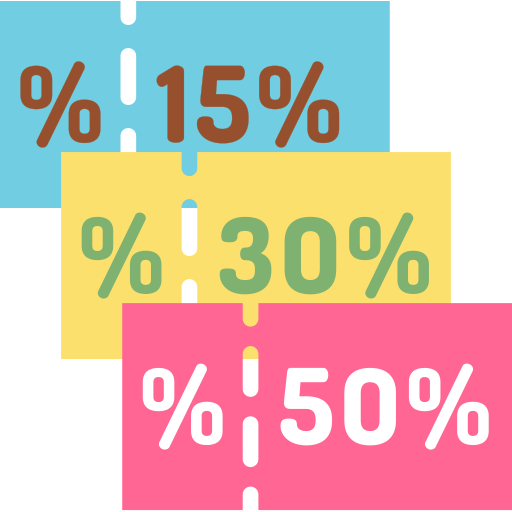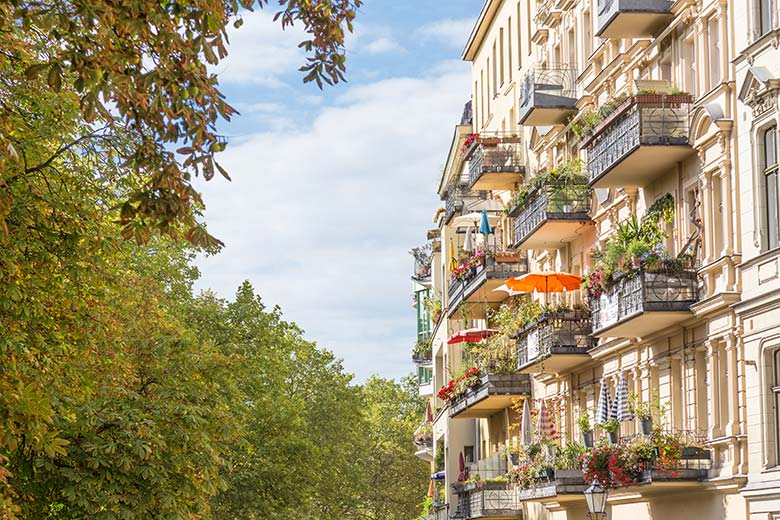
Find out how you can easily rent a flat or apartment in Berlin, Germany. Get the full list of documents you need for the apartment rental application process and tips to boost the success rate of living in your dream home.
Do you know what the two most frequently asked questions are for people who are moving to Germany or living in Berlin? The first is how to find a serious relationship in the city. And the second is how to find and successfully rent a flat or apartment in Berlin.
Whilst we may not be able to help you with the first question, we can definitely help you with the second.
The topic of renting apartments in Berlin is notoriously challenging and stressful, but it doesn’t have to be. Armed with the right resources, information and mentality, this guide will help you easily find a room, flat or apartment to rent in Berlin.
A quick disclosure before we begin. Please note that we are sharing research and tips based on our personal experience of renting an apartment in Berlin and that this does not replace professional or legal advice.
How Does Renting Apartments in Berlin Work?
Unlike other capital cities around the world like London or New York, you don’t need a rental agency or estate agent to help you find an apartment to rent in Berlin.
You can find a flat in Berlin and complete the entire process on your own quite easily with the right information and resources.
But first… Here’s some basic German apartment rental terminology you should know.
As a general rule, total costs to rent an apartment in Germany is structured: rent (‘Kalt Miete’ / cold rent) + running costs (‘Nebenkosten’) + utilities like heating and electricity (‘Heizung’ und ‘Strom’).
Most ads for apartments in Berlin won’t list these items individually, but will show two rental amounts: “Kalt Miete’ (cold rent) and ‘Warm Miete’ (warm rent).
The ‘Warm Miete’ should include the cold rent, running costs and utilities. But this is not always the case. For longer-term apartments, you usually have to register your own account with a gas and electricity supplier. In that case, your warm miete should only include running costs.
Need to open your own electricity account but have no idea how? Read our Electricity Providers in Germany guide. We share some essential tips on what to look out for when choosing an electricity company and how you can save over €200 when signing a new contract.
Tip: Whether you’re renting an apartment in Berlin for short or long term, always ask whether water, gas, heating and electricity are included in the ‘Warm Miete’.
Ideally, you should start looking for a flat or apartment in Berlin before arriving. But if that’s not possible, you could rent a short term room or apartment in Berlin before finding a more long term option.
Moving To Germany: Short Term Accommodation in Berlin
If you’re planning on moving to Germany and need a temporary place to stay, here’s some great short term accommodation options in Berlin:
- Apartment Hotels in Berlin with Anmeldung
- Hostels in Berlin
- AirBnB
- WG (stands for flat share in German)
- Short term furnished apartments
We’ll discuss the last two options in more detail later in the guide. But these are great ways to temporarily rent in Berlin when you’ve just arrived and don’t have all the required documents to apply for long term apartments in Berlin.
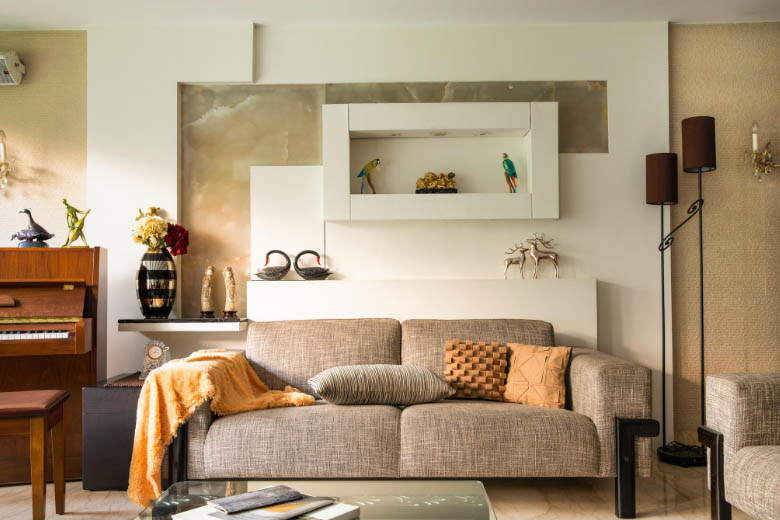
Renting Apartments in Berlin With or Without Anmeldung
What is Anmeldung and Why is it Important?
If you’ve never lived in Germany before, you’re probably wondering what ‘Anmeldung’ is all about and why it’s important.
‘Anmeldung’ simply means ‘registration’ in German. So in the context of renting an apartment in Berlin (or anywhere else in Germany), ‘Anmeldung’ means the registration of your residential address.
In Germany, you need the permission of the landlord to be able to register his/her apartment as your residential address. That’s why some advertisements for apartments in Berlin will specify whether ‘Anmeldung’ is included or not.
‘Anmeldung’ may just be a piece of paper, but it’s super important since it proves that you live in Germany. It’s therefore an essential document to have if you plan to open a German bank account, get a tax number, apply for jobs or plan to register your own business in Germany.
So depending on your personal circumstances, you can rent an apartment in Berlin with or without ‘Anmeldung’.
But just so you know, it’s actually not legal for any landlord in Germany to rent an apartment out long-term (i.e. more than 6 months) without Anmeldung. But that’s another story all together and probably deserves another blog post on its own…
Tip: Find out how to get your ‘Anmeldung’ done the stress-free way with this How To Get Anmeldung in Germany in 3 Easy Steps guide.
Besides renting an entire apartment out, you could also just rent a room in Berlin. It’s actually quite common to flat share in Germany, not just for expats but for locals too.
Flat sharing or otherwise better known as WG (‘Wohngemeinschaft’ in German) is a great option if you prefer the co-living lifestyle. It’s a great way to meet new people in a new city and you also get the added benefit of sharing and reducing your living costs.
You can WG or share an apartment in Berlin for short or long term. We’ll cover both options later in this guide.

Related Guide: Did you know that there are German customs you should know before renting an apartment in Germany? Yup! It will make the apartment rental process much easier and save you time, money and heartache too. Read our German Cultural Norms to know to avoid Culture Shock Renting in Germany guide to find out more. Here’s a sneak peak:
Documents Required To Rent Apartments in Berlin
Whether you’re renting a room (WG) or apartment in Berlin for short or long term, you’ll need certain documents to apply.
We’ll cover both the mandatory or necessary documents, as well as the optional documents that can help improve your chances of successfully renting an apartment in Berlin.
Tip: Have all your paperwork and documents assembled and ready BEFORE you start applying to rent a flat or apartment in Berlin. Competition is fierce – you want to have all your ducks in a row so you can apply after the apartment viewing.
Necessary Documents to Rent an Apartment in Berlin
- Copy of your passport or ID card
- Proof of income / work contract, or
- Bank statement (if you freelance or don’t have work yet)
- Tenant self disclosure form (called ‘Mieterselbstauskunft’ in German)
Not sure what proof of income means? If you’re employed in Germany, you just need to show a copy of your last 3 pay slips. If you don’t have that yet because you still have to start working, you can try provide a copy of your signed work contract and see if the landlord will accept that.
If you’re a freelancer or self-employed, you can either show your most recent bank statement (German bank account if possible) that shows how much savings you have. Otherwise if you’ve been freelancing in Germany for a while and have done a tax assessment, you could also show your last ‘Steuerbescheid’. It will show how much you made in the last year.
Lastly, the ‘Mieterselbstauskunft’ is a tenant self disclosure form. The name sounds intimidating, but it’s just a form that you can easily fill out with your details like where you work, whether you’ve rented an apartment in Germany before, if you’ve ever missed a rent payment and so forth.
You can download the ‘Mieterselbstauskunft’ tenant self disclosure form for free.
The only bummer is that the form is in German. So make sure to use Google Translate if your German isn’t up to scratch yet. Or you could alternatively translate the entire PDF or word document using this free online document translator.
Tip: Most landlords expect the household income to be at least triple the amount of the monthly ‘kalt’ rent. In other words, if your monthly rent is €650, then your household income should at least be €1,950 a month.
Optional Documents to Rent an Apartment in Berlin
- SCHUFA (credit certificate)
- Free of rent-related debt certificate (‘Mietschuldenfreiheitsbescheinigung’)
- Proposal / letter of motivation
These documents may be listed as ‘optional’, but they’re important to have especially if you want to improve your success rate of renting an apartment in Berlin.
We’ve only listed them as optional because you won’t be eligible for documents like SCHUFA or the rent-related debt certificate, if you’ve just moved to Berlin or Germany.
But don’t worry if you don’t have them. Some landlords are willing to skip the SCHUFA and rent-related debt certificate (especially for short-term apartment rentals) if you can reassure them in another way that you’ll be able to afford to pay rent over the period.
Examples of that would be offering to pay rent 2 or 3 months in advance. An alternative is to ask a parent to sign as a guarantor or surety for your lease agreement.

Related Guide: Need to rent an apartment in Berlin but not sure which neighborhood is best to live in? Don’t worry! We give you the low-down in our Berlin Neighborhoods and Districts guide.
What is SCHUFA?
In simple terms, SCHUFA is basically a document or certificate that shows your credit record in Germany. It shows whether you pay your bills on time, have any credit card debt or any other outstanding bills.
Most landlords will request for SCHUFA. But like we mentioned earlier, your SCHUFA record will be blank if you’ve just arrived in Berlin or Germany.
In this case, let your landlord know that you’ve just arrived in Germany and therefore won’t have a SCHUFA record. Then let them know that you are willing to increase your deposit up to 2 or 3 months (if you’re able to do so) to give him/her reassurance. This should massively help improve your chances of renting an apartment in Berlin.
How To Get SCHUFA in Germany?
You can easily order and download your SCHUFA record online with MeineSCHUFA.de. It costs €29.95 to get the comprehensive SCHUFA document.
You can also get one free SCHUFA per year. But you need to be a bit more patient with the free SCHUFA option because it’s not downloadable and will have to be delivered to you. You can wait up to a month for this, so go for the paid SCHUFA option if you’re in a hurry.
What is ‘Mietschuldenfreiheitsbescheinigung’?
‘Mietschuldenfreiheitsbescheinigung’ may be the longest German word ever?! But have no fear, it’s just a certificate that says you don’t owe any rent-related debt.
Landlords ask for this document to double check that you don’t owe any money to your previous landlord. It also proves that you are able to pay a certain level of rent every month. This document simply gives them that extra level of reassurance that you’re a good tenant and will also honour your rent at your next apartment.
You won’t be able to get this document if you’ve never rented an apartment in Germany. But if you have rented an apartment before, you can contact your previous landlord and ask him/her to provide you with the ‘Mietschuldenfreiheitsbescheinigung’ or free of rent-related debt certificate.
What To Do When Landlord Won’t Issue Mietschuldenfreiheitsbescheinigung
If for whatever reason your landlord refuses to give you the Mietschuldenfreiheitsbescheinigung (they’re not legally obliged to) even though you’ve never missed a rent payment and don’t owe any money. You can alternatively print out a bank statement which shows that you’ve made payment to the landlord’s account for the length of the rental contract.
And if that’s not possible, you could also ask your landlord for a ‘Quittung’ (receipt in English) for all the payments you’ve made to date. The landlord is legally obliged to provide you with at least that if requested.
Fun Fact: Rental laws in Germany and in particularly Berlin, makes it very difficult for the landlord to evict or remove a tenant from their property. That’s why landlords are so picky who they select to stay and live in their apartments. Plus, they usually receive hundreds of applications. So they really do have the liberty to pick and choose who they do or don’t want.
Finding these tips useful? Then make sure you read our dedicated guide on 12 tips for renting apartments in Germany. It will help boost your success rate of renting a room, flat or even a house in Germany whether you’re moving to Frankfurt, Munich, Hamburg, Dusseldorf, Aachen or Berlin.
Letter of Proposal To Rent in Berlin
This step is completely optional, but we highly recommend it if you want to stand out from the crowd (and there’s going to be one when renting apartments in Berlin).
Write a short proposal or cover letter to go along with your documents. Include a short paragraph on who you are, where you’re from, why you’re living in Berlin, what you do for a living and even include a fun fact or a few hobbies you enjoy.
And don’t be shy to insert a smiley photo of yourself on this letter. It’s quite normal in Germany to attach photographs for job or even kindergarden and school application forms.
This additional step will go a long way to help your potential landlord to know you a bit better and help sway his/her choice to pick you to make their apartment your new home.
Tip: Try your best to communicate in German when submitting your apartment rental applications. This includes your proposal letter and any other documents that you’ll need to submit. Yes, this is a very difficult ask especially if you’re still learning the language. But speaking German (or at least writing your e-mails in German with the help of Google Translate or ChatGPT) will help improve your chances of renting an apartment in Berlin and Germany. Get a head start on learning the language with 22 fun and free ways to learn German online.
Save Me For Later

Renting Apartments in Berlin: Short vs Long Term
Like we mentioned earlier, it may be more challenging to rent a long term apartment in Berlin and Germany if you don’t have all the necessary and optional documents we’ve listed.
In this case, rent a short term apartment (less than 6 months) so you have time to become eligible for documents such as SCHUFA and ‘Mietschuldenfreiheitsbescheinigung’.
Just be mindful that the rent for short term apartments are usually much higher than long term apartments. Depending on the area and the apartment, short term rentals could easily cost 20% to 40% more than what you would pay for long term apartment rentals in Berlin.
So if you have all the documents and you know which area you want to stay in Berlin, always rent a long term apartment to save yourself money.
Tip: Competition is fierce whether you’re renting an apartment in Berlin for short or long term. The key to successfully renting an apartment in Berlin and Germany is being super organised and persistent. Be mentally prepared to send out 30 to 50+ applications. Some will respond, most will not. But whatever you do, don’t give up and keep trying.
Berlin Apartments For Rent: Short Term
You can rent a flat or an apartment in Berlin short term for a few weeks up to a few months. These apartments or rooms (WG) usually come fully furnished.
Some short term rooms or apartments allow ‘Anmeldung’, but most do not. Always ask whether ‘Anmeldung’ is possible if it’s important for you to get this document.
Related Guide: If you’re planning to rent a short term apartment in Berlin, make sure to ask your landlord whether your rent includes ‘Rundfunkbeitrag’ or TV license fees. The apartment may not have a TV, but you will have to pay this fee regardless. There are certain cases where you may be exempt from paying this fee. Read our Germany TV tax guide to find out what it is and whether you’re exempt from paying!
Here’s a list of resources for finding short term apartments to rent in Berlin.
Websites For Finding Short Term Apartments in Berlin to Rent
- WG Gesucht (great for flat share or subletting entire apartments)
- Ebay-Kleinanzeigen – short term apartments
- Nestpick
- Spot A Home (virtual apartment viewings)
- Habyt
- Housing Anywhere
- Berlin99
- Facebook Groups
Facebook Groups: Short Term Apartments in Berlin
Facebook groups are awesome for finding rooms, flats or apartments to rent in Berlin. Simply type in ‘Berlin apartments’, ‘Berlin flats’ or ‘Berlin Wohnung’ in the search bar and a list should come up.
Here’s some of our favourite Facebook groups:
- WG Zimmer in Berlin
- Short Term Rentals Berlin
- Flats in Berlin
- Apartments / Roommates Berlin
- Berlin Apartments
Facebook Groups for Expats living in Berlin
Expat groups are also great for finding a room or apartment to rent for short term in Berlin:
Berlin Apartments For Rent: Long Term
You can rent a room or flat in Berlin long term for 6 months or longer and even sign an unlimited lease. An unlimited lease (or ‘unbefristeter vertrag’) means that the tenant can stay there as long as he/she wants. Only the tenant can cancel the lease unless he/she has breached any of the rules in the rental contract.
When you sign an unlimited lease contract with the landlord, there’s only a handful of reasons the landlord can use to cancel the rent contract with the tenant. This is why this is the best apartment rental contract to sign if you plan to stay in Berlin or Germany for a year or longer and know which area you want to stay in.
Tip: Long term apartment rentals in Germany will usually always allow for ‘Anmeldung’.
Most long term rooms and apartments are rented without furniture. So you’ll need to buy your own bed, desk and closet if you’re renting a room. And for an apartment, you’ll have to buy all your own furniture and even install your own kitchen (yes – you read that right!).
It’s very common to take your kitchen with you, when you’re moving from one long term apartment to another in Berlin…
Bonus Tip: It’s expensive to furnish an empty apartment. So it may be wise to insure your household content from possible damage due to fire, water or theft. Get a quote for household contents insurance from Feather and do it all in English!
Here’s a list of resources for finding long term apartments to rent in Berlin.
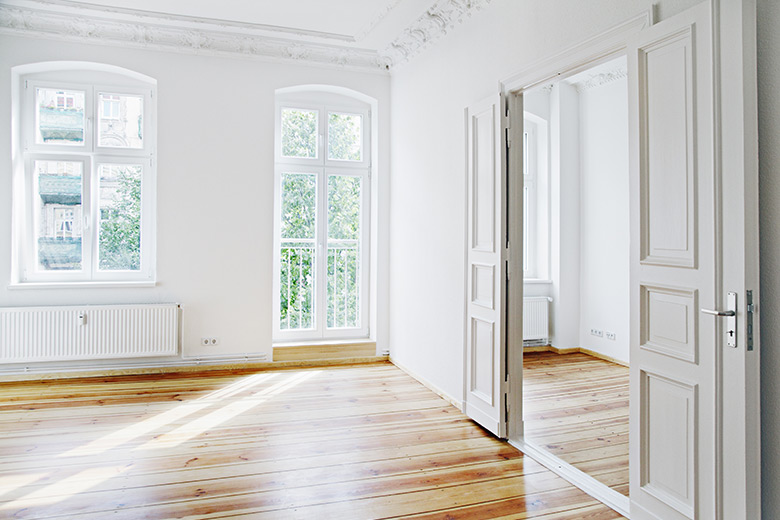
Related Guide: When you’ve finally signed that lease and ready to move into your new apartment. You’ll probably need a moving van to transport your furniture and belongings. Find out how you can easily rent a van in Berlin (or anywhere else in Germany) and how much it costs in our Van Rental in Germany guide.
Websites For Finding Long Term Apartments in Berlin to Rent
- Immobilienscout24
- Immonet
- Immowelt
- Stekkies
- Nestpick
- Wohnunsboerse
- Ebay-Kleinanzeigen – long term apartments
- Facebook Groups
Renting an apartment in Berlin is notoriously difficult, especially if you’re a foreigner (like us). It can feel like a full-time job in itself trying to search for available apartments AND apply for them as soon as new listings come up.
Trust us – we know how it feels. Luckily with new technology and tools, there are easier ways to do this.
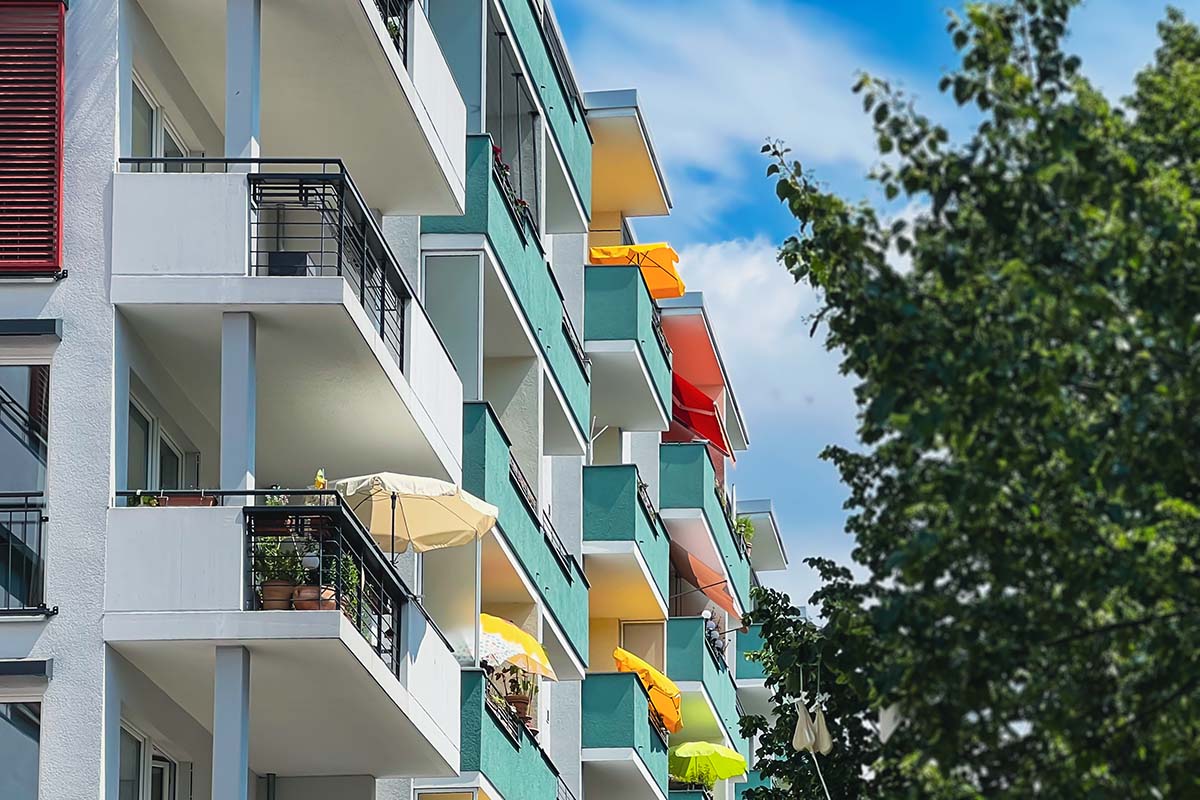
And no – we’re not suggesting that you hire a real estate agent. They’ll be more than happy to take your money and chances are high that you still won’t find an apartment to rent…
Instead, rather spend your hard-earned money on a rental platform like Stekkies. With Stekkies, you’ll be the first to receive new rental listings BEFORE they even hit the big platforms like Immowelt, Immonet and ImmobilienScout24. A BIG advantage!
Plus, these new listings will be filtered to your personal criteria. Neighborhood, maximum rent, minimum square meters, furnished vs unfurnished, room vs whole apartment, the choice is yours!
Stekkies also screen their listings for possible scams (unlike the other platforms…).
Give Stekkies a go. If you’re not happy with their service after 14 days, they’ll happily give you a refund.
Facebook Groups: Long Term Apartments in Berlin
You can also find long term rooms and apartments in Berlin to rent in the Facebook Expat Groups mentioned earlier.
Bonus Tip: If you’re moving from one apartment or flat in Berlin to another. Make sure you use this free mail forwarding service in Germany to redirect your mail from your old to new address. It’s the easiest way to let the banks, insurance companies, and other essential service providers know that you’ve moved. It takes less than 5 minutes to do and you can do it all online!
Save Me For Later

General Process when Renting Apartments in Berlin
We’re almost at the finish line! So now that you know whether to rent a short or long term apartment, what documents you need to submit, how to find rooms, flats or apartments in Berlin and have submitted as many applications as possible, here’s what to expect next.
1. Berlin Apartment Viewings
If you’ve been invited to an apartment viewing – congrats! According to ImmoScout24, each Berlin apartment rental listing gets on average 127 requests of interest. So if you’ve been invited to a viewing, that’s a big step in the right direction!
Apartment viewings can happen in groups or on a one-to-one basis. If given the choice, always pick the one-on-one appointments. It will give you the opportunity to work your charm and hopefully convince the landlord to rent the flat to you.
Speak in German if possible, or at least ask in German whether it’s possible for you to speak in English. If you can bring a friend who can speak German on your behalf, even better. Be punctual and have all your printed documents with you in case you really love the apartment and want to submit your documents immediately.
Basically you should treat it like a job interview, only without the need of wearing a suit…
2. Provide written confirmation of interest
If you liked the apartment and want to formally confirm your interest in renting the apartment or flat, you can let the landlord or his/her representative know at the viewing.
After the viewing, we would also recommend following that up with an e-mail to confirm your interest in renting the flat. Make sure you use this opportunity to ask any other remaining questions you may have on the apartment and send through the required list of documents that we mentioned earlier.
You want to do this step as quickly as possible to improve your chances of securing the rental apartment.
3. Read and Sign Rental Contract
Hopefully all goes well and the landlord agrees to renting the apartment to you. YAY! But before you run off celebrating this big win, you should carefully read the rental contract (‘Mietvertrag’) to make sure you understand and agree with all the terms of the agreement.
The rental contract will usually be in German. So make sure to use Google Translate or this free online document translator to translate it.
4. Pay Rental Deposit
After you’ve signed the rental contract, you’ll need to pay the rental deposit before you can get the keys to your new home.
Rental deposits in Berlin and Germany usually equates to 1 to 3 months’ worth of rent. You’ll also need to pay the first month’s rent along with the deposit because rent is paid in advance in Germany.
5. Get Apartment Keys and Site Inspection
Once you’ve paid the deposit and first month’s rental, you can arrange a time and date to collect the keys to your new apartment. You’ll also be using this opportunity to inspect the current state of the apartment, document any damages and takedown meter readings for water, electricity and gas if available. This is called a ‘Übergabeprotokoll’.
Make sure to look thoroughly so these damages are not claimed against your deposit when you vacate the flat. We’d recommend taking photos of the damages and sending them to the landlord or rental agent so that you’ve both been made aware of it.
If you’re renting a fully furnished flat or apartment, you may also need to go through an inventory list.
Related Guide: What else do you need to do after you sign the rental contract to your new home? Get the free checklist on things to do when moving apartments in Germany. We explain the apartment handover protocol in detail and other things you must do to make your move less stressful.
And that’s it! You’ll probably move into your new apartment in Berlin quite quickly after you’ve paid your deposit, first month’s rent, and collected the keys.
The process can be intimidating at first, but hopefully this Berlin Apartment Rental guide made it easier. Make sure to read our Berlin Cost of Living guide to find out what monthly expenses to budget for when living in Berlin.
To avoid being scammed, make sure you read the next section.
Apartments in Berlin: Rental Scams
Apartment scams are rife in any city where housing demand is high. Berlin is no exception. To avoid being scammed when renting an apartment in Berlin and Germany, make sure you NEVER pay any money before signing anything.

If you’re flat sharing or subletting from a main tenant, make sure you ask him/her for proof that they have the landlord’s approval to sublease. Otherwise, you may get kicked out (along with the main tenant) when the landlord finds out. A sure-way to tell that the sub-let is illegal (or not landlord-approved) is when you’re told you can’t register for ‘Anmeldung’ for your room or apartment.
Unfortunately, there will always be unscrupulous individuals out there who will prey on the desperation of others.
We received a few scam e-mails to rent apartments in Berlin too. We got so frustrated that we dedicated an entire guide to the topic! Read our 7 tips to spot and avoid Berlin apartment scams so you don’t become a victim of rental fraud.
How To Rent A Flat in Berlin
We hope you found this Berlin Apartment Rental guide useful and easy to follow. This is only part 1 of our Berlin Apartment series. We still have more useful information and tips to share. So make sure to subscribe or enable notifications so you don’t miss them.
Planning on moving to Berlin? Make sure to read our other Moving to Germany Guides.

